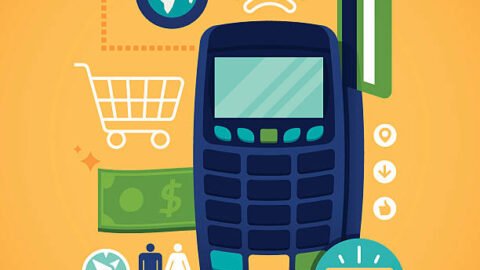NFC e-Passport Verification Explained- An Overview

NFC (Near Field Communication) technology is quietly revolutionizing critical aspects of global travel, security, and data handling. One standout development driven by this advancement is NFC e-passport verification. But what does it mean, how does it work, and why does it matter? Whether you’re researching for educational purposes or preparing for travel processes, this guide will break it all down for you.
This post covers the essentials of NFC e-passport verification, the significance of NFC-enabled passports, and its implementation, specifically exploring its role in Nigeria and other global regions. Let’s begin.
What Is an NFC-Enabled Passport?
An NFC-enabled passport, also referred to as an electronic passport (e-passport), contains a tiny RFID (Radio Frequency Identification) chip embedded within its cover. The chip securely houses essential information, including:
- The passport holder’s identity data (e.g., name, date of birth).
- A digitized passport photo.
- The passport number.
- Expiry dates and issuing nation details.
What distinguishes this type of passport is that the chip can be scanned using NFC-enabled devices, including smartphones with NFC readers or specialized border control equipment.
Key Features of NFC-Enabled Passports
- Enhanced security compared to traditional machine-readable passports through encrypted digital signatures.
- Compact and durable chips that store large amounts of secure information.
- Global standardization using ICAO (International Civil Aviation Organization) guidelines for universal compatibility.
NFC E-Passport Verification Process
E-passport verification refers to the process of authenticating the information stored on the RFID chip in an NFC-enabled passport. Here’s how it works in practical settings:
NFC Scanning
When an individual presents an NFC-enabled passport, its RFID chip is scanned by an NFC-enabled device. This is typically a passport-reading machine at immigration or a smartphone application designed for e-passport reading.
Data Decryption
The data on the chip is encrypted for security, and the device uses cryptographic protocols to decrypt and read this stored information securely.
Verification and Cross-Checking
The data read from the chip is cross-checked with information visible on the passport (e.g., name or photo) and with any connected databases, such as national or international identity records.
Real-Time Validation
Any tampering with the passport or its chip will show discrepancies during verification. If the chip’s security key does not match or if data has been altered, the device will fail to authenticate the passport.
This streamlined process makes travel faster, prevents identity fraud, and ensures compliance with international standards—essential factors for professionals in a remote sales job who frequently travel for business.
Why Is NFC Passport Verification Important?
Here are some key benefits of NFC e-passport verification:
- Enhanced Security:
NFC passports reduce the risk of identity fraud thanks to encrypted chips that store tamper-proof data.
- Efficient Border Processes:
Scanning a chip for verification is much faster than manually processing standard passports. Wait times are significantly reduced.
- Seamless International Travel:
NFC passports are internationally recognized following ICAO standards, allowing seamless identity verification globally.
- Counterfeit Prevention:
The built-in chip technology makes it almost impossible for counterfeiters to clone or manipulate NFC-enabled passports.
Must Visit: Knowledge Pro
NFC-Enabled Passport Verification in Nigeria
NFC-enabled passports have made their way into various countries, including Nigeria. Nigerian governments and organizations have adopted electronic passports to enhance national security, simplify border clearance, and comply with international identity management protocols.
Here are some key highlights of NFC-enabled passports in Nigeria:
- Introduction of e-Passports
The Nigerian Immigration Service (NIS) introduced e-passports equipped with NFC technology to improve the security and efficiency of travel documentation. The initiative aligns with the global shift toward technologically advanced identity solutions.
- Biometric Data Incorporation
Nigeria’s NFC-enabled passports come with additional biometric features, such as iris scans and fingerprint data. These biometric identifiers provide an extra layer of security during authentication.
- Efficient Verification Infrastructure
At airports and other immigration locations, NFC-supported verification machines simplify traveler authentication and reduce processing times. Nigerian authorities continue to upgrade these technologies for better accommodation of the increasing number of travelers.
- Global Travel Compliance
Nigeria’s adoption of e-passports ensures citizens can travel globally without delays caused by manual processing or misaligned identification standards.
Applications of NFC Verification Beyond Travel
The use of NFC e-passport verification extends well beyond the airport. Here’s where NFC’s benefits make a difference:
1. Banking and Financial Transactions
NFC-based e-passports are increasingly leveraged for secure financial transactions, especially as Know Your Customer (KYC) regulations require stringent identity verification.
2. Access Control
Various organizations use NFC’s verification capabilities in security systems to restrict access to sensitive premises or systems.
3. Visa Application Processes
Many foreign consulates now accept NFC passport verification for visa applications, making the process faster and more foolproof.
4. Citizen and Residency Verification
Government agencies use e-passport chips for effective citizen management, recordkeeping, and assistance programs.
NFC e-Passport Verification FAQs
Is NFC passport verification safe?
Yes, NFC passports use highly secure encryption standards, preventing tampering and protecting user data during verification processes.
How do I know if my passport is NFC-enabled?
Look for a rectangular chip icon on your passport cover. If this symbol is present, your passport is NFC-enabled.
Can I use my NFC smartphone to read an NFC-enabled passport?
Yes, many apps are available that allow smartphones with NFC capabilities to read e-passport chips. However, the app must comply with ICAO regulations and data protection laws.
Do Nigerian passports include NFC chips?
Yes, Nigerian electronic passports are NFC-enabled and widely accepted internationally, conforming to ICAO standards.
Driving Future Efficiency with NFC Technology
NFC technology in e-passport verification is a game-changer for international travel and identity security. With initiatives like NFC-enabled passports in Nigeria and beyond, we can envision a world built on speed, accuracy, and accessibility for all travelers.
By investing in and supporting technologies like NFC e-passports, nations and individuals alike create safer and more efficient global experiences. Curious about more uses of NFC? Stay tuned for insights into emerging applications as we move toward a more connected world.
Read more blogs



